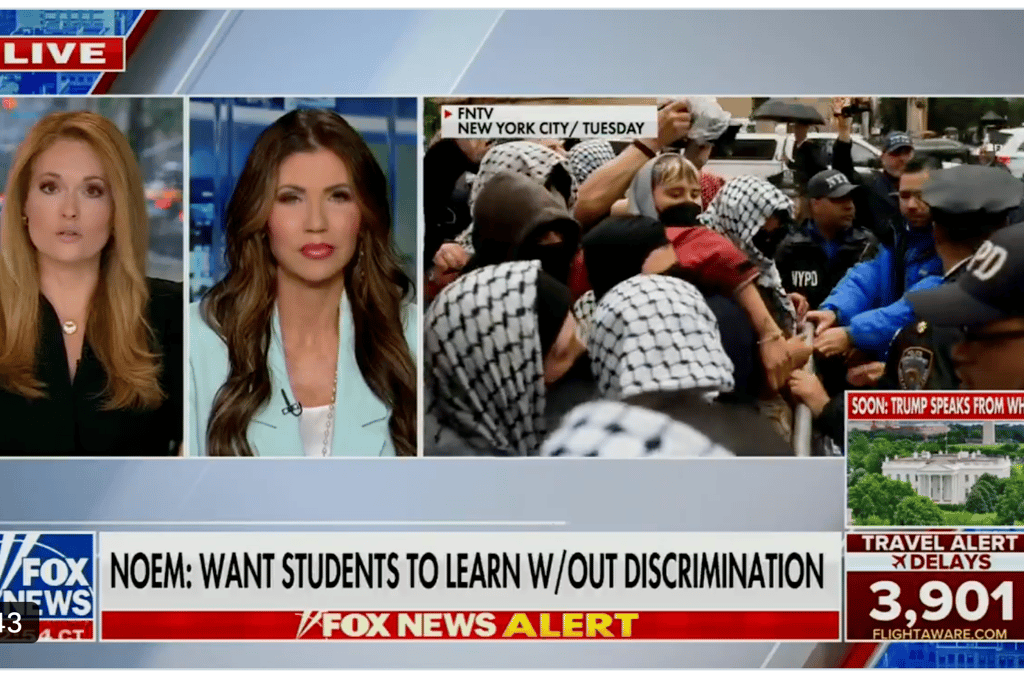The Battle Over University Campuses: Politics, Protests, and the Future of Education
5/22/20253 min read


The Battle Over University Campuses: Politics, Protests, and the Future of Education
In the heart of America's academic landscape, a storm is brewing. Recent events have thrust university campuses into the political spotlight, with significant implications for education, student safety, and institutional autonomy. The controversy began with Harvard University facing a ban on enrolling international students, a move spearheaded by DHS Secretary Kristi Noem. This decision, coupled with warnings to other universities, marks a pivotal moment in the ongoing debate over campus politics, protests, and the role of education in society.
The Spark: Harvard's International Student Ban
On May 22, 2025, Aaron Rupar shared a clip on X (formerly Twitter) capturing a Fox News segment where Noem announced the ban on foreign students at Harvard. The rationale? Allegations of fostering violence, antisemitism, and coordination with the Chinese Communist Party. This move is not just about Harvard; it's a warning to all universities to "get your act together" or face similar consequences. The ban affects 27% of Harvard's student body, raising questions about the future of international education in the U.S.
A Broader Context: Campus Protests and Political Pressure
This action comes amidst a backdrop of heightened tension on campuses nationwide. Columbia University, for instance, has been a focal point of pro-Palestinian protests, leading to safety concerns for Jewish students. The situation escalated to the point where a rabbi associated with Columbia urged Jewish students to return home, citing an inability to guarantee their safety. Such incidents have drawn the attention of political figures, including Virginia Foxx, who warned university leaders of potential consequences if order is not restored.
The political pressure is palpable. The Trump administration's move against Harvard is part of a larger strategy to influence university policies, particularly those related to free speech, diversity, and international relations. This approach reflects a broader trend of using federal leverage to shape educational institutions, raising concerns about academic freedom and the politicization of education.
The Economic and Cultural Impact
International students are a vital part of the U.S. higher education system, contributing over $44 billion to the economy in 2023 alone. The ban on Harvard's international students not only disrupts this economic flow but also sends a chilling message to global academic communities. It undermines the U.S.'s position as a leader in higher education and could deter future international enrollment, affecting research, innovation, and cultural exchange.
Moreover, the focus on antisemitism and campus safety, while crucial, must be balanced with the principles of free speech and peaceful assembly. Universities are meant to be spaces for dialogue and dissent, not battlegrounds for political agendas. The challenge lies in addressing legitimate concerns without stifling the very essence of academic inquiry.
The Role of Media and Public Perception
Media plays a significant role in shaping public perception of these events. Platforms like Fox News amplify certain narratives, often polarizing the discourse. The X post by Rupar, for instance, highlights Noem's stance, but it also invites scrutiny of the broader implications. Readers are left to ponder whether this is a necessary measure to ensure safety or an overreach that threatens educational diversity.
Looking Forward: The Future of University Campuses
As we navigate this complex landscape, several questions emerge. How can universities balance safety with free speech? What role should the government play in shaping campus policies? And how can we ensure that education remains a beacon of progress rather than a pawn in political games?
The battle over university campuses is far from over. It challenges us to rethink the purpose of education, the limits of political influence, and the value of diversity in learning. As stakeholders—students, faculty, administrators, and policymakers—we must engage in this dialogue with openness and a commitment to the greater good.
Thought-Provoking Questions
How can universities maintain a safe environment while upholding the principles of free speech and academic freedom?
What are the long-term implications of political interference in higher education for international students and global academic collaboration?
Should the government have the authority to influence university policies, or should institutions retain full autonomy?
This ongoing saga reminds us that the future of education is not just about classrooms and curricula; it's about the values we uphold and the world we aspire to create. Let's keep the conversation going.
hello@boncopia.com
+13286036419
© 2025. All rights reserved.